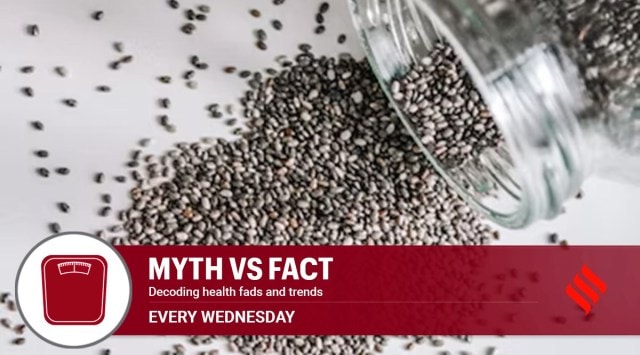Mustard seeds in rasam: Why they are better than chicken soup for disease control
'Mustard seeds are known to be anti-bacterial, anti-fungal, anti-inflammatory and anti-cancer,’ says Dr Neeti Sharma, Senior Consultant, Nutrition and Dietetics at Marengo Asia Hospitals, Gurugram.
 When it comes to respiratory health, mustard seeds are known to relieve congestion-related problems. (Source: Unsplash)
When it comes to respiratory health, mustard seeds are known to relieve congestion-related problems. (Source: Unsplash) Chicken soup has always been associated with relief from common cold during the monsoon. But while it may feel emotionally comforting, it does not really cure your cold. “Of course, it is rich in minerals as they leach into the water from the vegetables and meats you toss into it. But then any warm liquid such as rasam, green tea and herbal teas like those of cinnamon, turmeric and ginger or what we commonly call kadha, relieve you from nasal congestion and sore throat. Even hot lemon water works,” says Dr Neeti Sharma, Senior Consultant, Nutrition and Dietetics at Marengo Asia Hospitals, Gurugram.
In fact, she feels that a lot of foods that we temper with mustard seeds may have a greater nutritional value. “That’s because mustard seeds are packed with antioxidants like isorhamnetin, kaempferol and carotenoids. All of these help protect our body against oxidative damage, chronic diseases and infection. Mustard seeds are known to be anti-bacterial, anti-fungal, anti-inflammatory and anti-cancer,” she adds.
When it comes to respiratory health, mustard seeds are known to relieve congestion-related problems. “Mustard seeds contain compounds like allyl isothiocyanate, which has antibacterial qualities and can help ward off bacteria and viruses that may cause congestion. Though no scientific data is extensive enough to prove this among humans, the seeds definitely have these properties,” says Dr Sharma.
Mustard leaves and seeds are considered to be rich in vitamins A, C and K, which are crucial for fighting chronic diseases, eye health and blood clotting mechanisms. “Besides, mustard seeds are rich in fibre, selenium, manganese and magnesium, all of which boost immunity,” says Dr Sharma.
Actually mustard has a wide-ranging arc of benefits. Mustard green extract benefits people with diabetes by lowering blood sugar levels.
The seeds are good for eye health. And regular consumption of a mustard seeds-rich diet reduces inflammation. “The seeds activate the healing process in skin lesions and dermatitis,” adds Dr Sharma.
Compounds like glucosinolates and myrosinase in mustard seeds are known to use phytochemicals that inhibit the growth of cancer cells. However, more research on humans is needed to understand this phenomenon of mustard seeds.
“Generally, mustard seeds are good for overall metabolism, which means that they help keep the body in shape, burning calories and fat in adequate amounts. They are high in fibre, which prevents post-meal blood sugar spikes and prolongs satiety. Fibre also improves digestion and bowel movements that can help in improving your gut microbiota. They contain some hunger-reducing compounds that help keep to your portions. Mustard seeds contain compounds that can increase thermogenesis in the body. This means the body burns more calories to produce heat, which can aid in weight loss. The seeds contain selenium that plays an important role in supporting thyroid function. A healthy thyroid can in turn help maintain body metabolism,” says Dr Sharma.






- 01
- 02
- 03
- 04
- 05

























